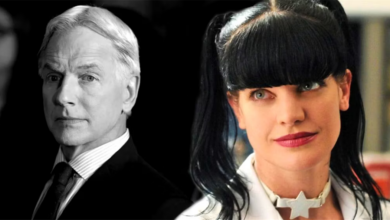Star Trek Has Always Been ‘Woke’ – Some Fans Just Forgot
It's not surprising for angry critics to call modern genre stories "woke." But in the case of Star Trek, being a progressive franchise is the point.

Season 2 of the prequel series Star Trek: Strange New Worlds will deliver ten more episodic “classic” franchise stories about discovery, optimism and politics. Even for all its accolades, it couldn’t avoid the “woke” label from critics angry at the new wave of Star Trek stories. While the definition of the term is as nebulous as the Delphic Expanse, its intention is easy to discern. Any show or movie with a diverse cast focused on stories of empowerment, compassion or inclusion is sure to be hit with the label. When it comes to Star Trek, however, this criticism doesn’t make sense as creator Gene Roddenberry designed the series to advance his progressive political ideology about a diverse and equitable future.
Star Trek: The Original Series featured the most diverse cast of principal characters at the time. It may have held that title well into the 1990s. This is because of Roddenberry’s motto for the future he created: infinite diversity in infinite combinations. Even the tiny details about his future are radical political statements. Earth no longer uses money, and the driving force of society isn’t about material gain. There are no longer countries, but rather a single Earth government. Gene Roddenberry was the original globalist, even though not everything in Star Trek held up. In fact, each Star Trek series has been representative of the uncorrected biases of their time. However, what makes Star Trek so progressive is that the franchise evolves to try and be better.
The Star Trek Franchise Always Promoted Progressive Values

Star Trek often makes use of present-day events for its own history. A Season 2 episode of The Original Series called “A Private Little War” is a very unsubtle allegory about Vietnam being a destructive, losing gambit before the release of the Pentagon Papers. The Season 3 episode “Let This Be Your Last Battlefield,” is an equally unsubtle examination of racism and its destructive nature less than a year after the murder of Martin Luther King, Jr. Similarly, in its series premiere, Strange New Worlds used footage from the insurrection at the US Capitol on January 6, 2021. It was shown to a warring alien race as part of a presentation on how Earth fell into World War III.
Even the First Officer character, Una Chin Riley, was labeled a “woke” decision by those unfamiliar with her history. Called “Number One” by Gene Roddenberry, she was part of the failed first Star Trek
The tradition of inclusivity carried over into The Next Generation era of the franchise. A standout from that series is the Season 5 episode “The Outcast,” featuring a genderless alien race. The titular outcast named Soren says she identifies as “female,” which is seen as perversion on her world. Star Trek: Deep Space Nine also delved into deep political themes, including straightforward stories about the insidious nature of bigotry and xenophobia. Through all the series, Star Trek storytellers have expressed clear progressive values. Star Trek: Discovery even took this a step fur ther by bringing in Democratic political activist and Star Trek
Despite Roddenberry’s high-minded views on equality, he was still a man of his time. In the failed Star Trek pilot, Jeffery Hunter’s Captain Pike said he couldn’t get used to having women on the bridge. Similarly, female characters weren’t written very well throughout The Original Series, with female Starfleet officers often depicted as doe-eyed and lovesick. They often weren’t given phasers while the men were always armed. Despite “The Outcast,” the Rick Berman era of the franchise seemed to actively avoid LGBTQIA representation. Given these past hiccups, inclusion of multiple queer characters in third-wave Star Trek
Despite Star Trek’s high-minded ideals and eerily accurate predictions, at the end, it’s just fiction written by ordinary people, flaws and all. The best example is Star Trek: Enterprise and its take on terrorism. Critics of the show were appalled that Captain Archer tortured a prisoner. Others thought Commander Tucker’s lust for revenge after an alien attack on Earth killed his sister went against the Star Trek ethos. While this may be right, the people who told that story did so in the near-immediate aftermath of the United States’ global war on terror. Captain Archer’s torture scene, for example, debuted before the real-world controversy over “enhanced interrogation.” By the end of the season, Captain Archer mostly made an alliance with the formerly hostile species.
When it comes to story flaws, Star Trek: Discovery, Strange New Worlds and even Star Trek: Lower Decks are no different from the other shows. Still, the message is the same: infinite diversity in infinite combinations. While some allegories are subtle and complex, others are plain-as-day about what’s right and what’s wrong. Given the franchise’s history, inclusivity and progressive storytelling are not a new trend in modern Star Trek. It’s actually the show’s oldest and most meaningful purpose.






